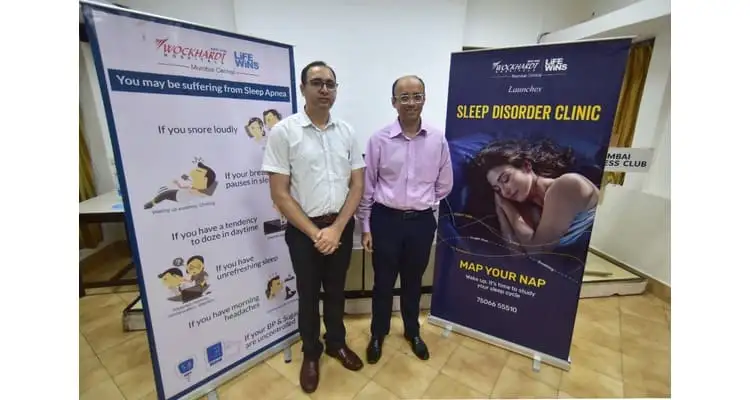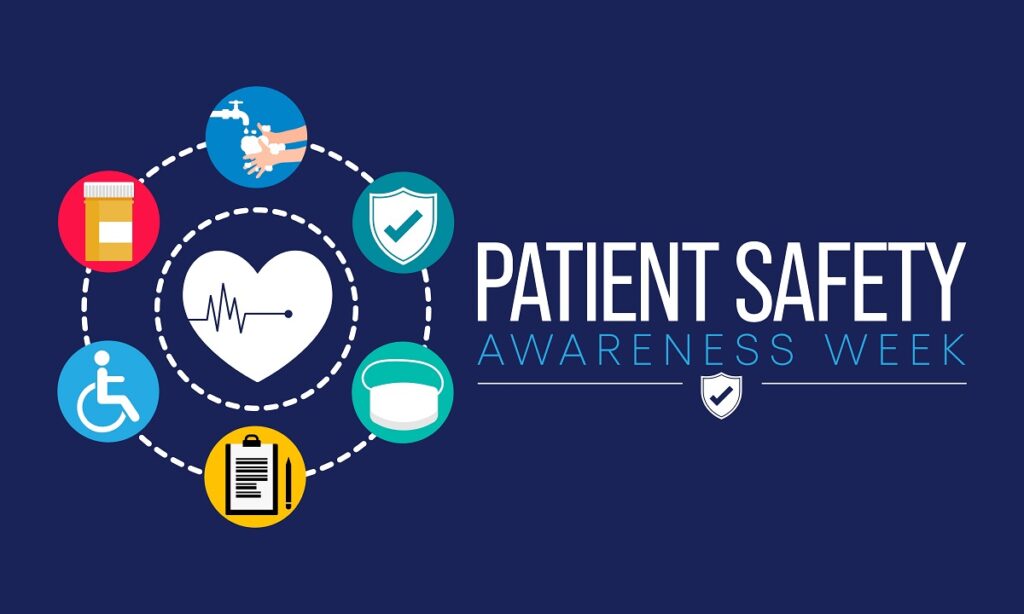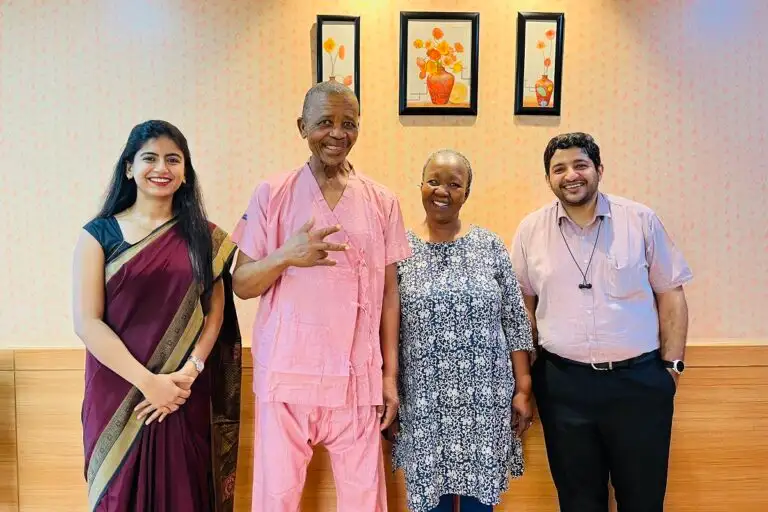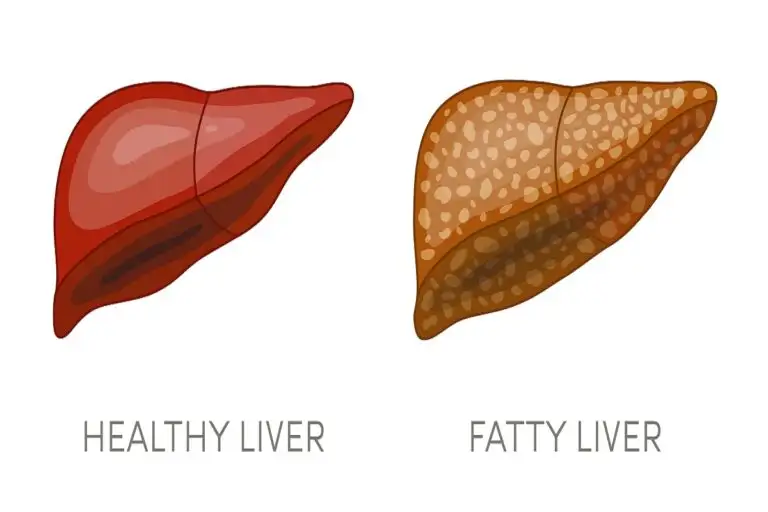Alzheimer Disease: 7 Warning Signs And Symptoms in Elders That Shouldn’t be Ignore

Age-related mild forgetfulness might be a regular phenomenon. If you have trouble remembering someone’s name but remember it afterward, it’s not a serious memory impairment. However, memory issues might be early indicators of Alzheimer’s disease if they significantly impact your everyday life. Alzheimer’s is a progressive neurological disorder, many individuals mistakenly think that it is a natural part of aging. Because of this mindset, many of us end up ignoring the early warning signs that our brains might be sending out. Here are seven signs early signs that a prospective Alzheimer’s patient may have that you shouldn’t miss. Consult your doctor if you have any of these symptoms and get your physical, as well as mental health, examined. They will review your medical history and conduct a mental status examination to assess your memory, problem-solving abilities, and capacity for simple logic. They might perform blood or brain imaging tests as well. It’s time to consult a doctor if you notice these changes in a loved one or yourself. Have a discussion with them about going to the doctor together. Ask your primary care physician or internal medicine specialist about dementia. Dr. Pavan PaiConsultant Interventional Neurologist and Stroke SpecialistWockhardt Hospitals Mira Road To book an appointment call: +918108101104 Source: https://www.india.com/health/alzheimer-disease-7-warning-signs-and-symptoms-in-elders-that-shouldnt-be-ignore-5667853/
5 tips will help you gain maturity and make better decisions in your life

Physical maturity typically occurs with advancing years. But the same doesn’t happen with everyone mentally. Mental maturity is the ability to take responsibility for your actions, to be sensitive and respectful of others, and to adjust and adapt to surroundings as necessary. A person with emotional maturity always adds value to himself and those around them. However, being immature can have a detrimental effect on both your personal and professional life. So, how to become mature? Let’s find out! Health Shots got in touch with Dr. Sonal Anand, Psychiatrist, Wockhardt Hospitals, Mira Road, Mumbai, who listed down a few ways a person can follow to become mature which can help make better decisions in life. Here are 5 tips to become mature, according to Dr. Anand: 1. Gain self-perspective Self-perspective refers to picturing what your thoughts and feelings would be if you were in another person’s shoes. Developing your own perspective helps you become mature. Dr. Anand says, “Observe your thoughts and behaviors so that you can become more objective and make better decisions. By gaining self-awareness you can understand yourself and even others better.” Along with this, start seeking feedback from other individuals to gain a fresh viewpoint. 2. Try to take control of your emotions It can be challenging to keep your emotions to yourself, and even constantly expressing them can cause issues. If you don’t express your feelings, over time, you could come to believe that no one is concerned about your needs and wants. You might feel nervous, depressed, and stressed as a result. However, if you express all of your sentiments, it could put you in a vulnerable place where people might judge you and think you can’t control your emotions. This can take a toll on your mental health. According to Dr. Anand, “One has to learn how to streamline emotions in a way so that balance can be achieved so as to make more rational decisions.” 3. Take charge of your overall health Taking charge of your health by choosing a healthy lifestyle will reduce dissatisfaction. Dr. Anand also says, “Physical and mental health both go hand in hand for a successful and meaningful life. Better health gives motivation and the strength required to see through difficult situations and come up with solutions.” Remember, better health can empower you to make better decisions. 4. Learn how to deal with negativity Being in a negative state of mind or situation can hamper decision-making. If you are feeling overwhelmed with negative feelings, it is important to look after yourself and take some time out to relax or do something you enjoy. “Analyse the situation and look for positive means to deal with negativity,” says Dr. Anand. Practicing meditation, and yoga can help in such situations. Cognitive restructuring is also a better way of changing thoughts to reduce negative thoughts. 5. Practice empathy Emotionally mature individuals approach life by doing as much good as they can and supporting those around them. Developing empathy for others helps in making wiser decisions and gaining mutual respect. Take criticism in a way that can be used for self-development and motivation. “Learn how to forgive yourself as well so that the mind is clear and more capable of better decision-making,” suggests Dr. Anand. Dr. Sonal AnandConsultant PsychiatristWockhardt Hospitals, Mira Road To book an appointment call: +918108101104 Source: https://www.healthshots.com/how-to/follow-these-5-tips-to-become-mature/
Celebrating National Nutrition Week, Nagpur

Wockhardt Hospitals, Nagpur recently celebrated National Nutrition Week, Cooking competition on Traditional Healthy Recipes for women was organized for the employees of Wockhardt Hospitals Nagpur. An overwhelming response was received and many innovative healthy recipes were prepared. The competition was judged by Centre head Mr. Abhinandan Dastenavar, Mrs. Rita Rawat, Dr. Renuka Mainde, Dr. Kavita Bakshi, and Chief Dietician Swati Awasthi. This year, Poshan Abhiyan has been launched by the Hon’ble Prime Minister which aims to achieve improvement in the status of nutrition of both children and women. To celebrate Rashtriya Poshan Maah, theme-based activities are conducted across the country throughout the month of September & informed Mrs. Swati Awasthi, Senior Dietician, Wockhardt Hospitals, Nagpur. The activities during the month will be centered around the following theme. Source: https://thelivenagpur.com/2022/09/30/wockhardt-hospital-nagpur-celebrates-national-nutrition-week/
Breast cancer in men goes underreported, say experts

According to the World Health Organisation, by the end of 2020, there will be 7.8 million women living with breast cancer globally. Breast cancer in men is unheard of and is frequently underreported because it is regarded as a “woman’s disease.” Not only does it affect men physically, but breast cancer in men also leads to emotional distress due to the stigma attached to the disease. “Breast cancer is considered to be an exclusive disease of females, and so patients often ignore male breast cancer. It can also be confused with gynecomastia (male breast enlargement), leading to a delay in diagnosis. Such factors, combined with cancer underreporting in India, result in a gross underestimation of male breast cancer load in our country,” Dr. Deepak Jha, told The Sunday Guardian. Explaining the reasons for several underreported cases, Dr. Meenu Walia, added, “The reasons for underreporting are primarily due to unawareness and stigma. Their masculinity is often questioned when men are diagnosed, so the stigma and inhibition increase manifold.” There is no specific official record of the number of male breast cancer cases. Despite the fact that men account for one out of every 10 breast cancer cases, 73% of men go undiagnosed for cancer symptoms. Most of the cases are diagnosed between 60-70 years, but the cases and symptoms can occur early too. “The incidence of breast cancer in men is almost 1%; therefore, the awareness level is very bleak. Breast tissue in men isn’t well developed, making it a rudimentary organ. However, because of the hormonal environment of the breast tissue in men, the chances of cancer are lower, but there has been a slow surge of cases over the last decade,” Dr. Meghal Sanghavi, a breast cancer surgeon at Wockhardt Hospital in Mumbai Central, told this paper. Dr. Rohan Khandelwal, added, “Until now, the awareness wasn›t there, so the patients weren›t coming forward. As more doctors share their findings, awareness is gradually growing, and male patients, at least in major cities, are not hesitant.” Experts have also spoken about several stigmas related to this. Dr. Saphalta Baghmar, “For instance, men with breast cancer are less masculine, treatment of male breast cancer is different from female are some common stigma.” Dr. Baghmar clarified that the treatment is no different as the procedure includes breast cancer surgery, hormone therapy, chemotherapy, targeted therapy, and radiation therapy. Male breast cancer is caused by a variety of factors, including age, genetic mutation, family history of breast cancer, men who have had radiation therapy to their chests or drugs containing estrogen that was previously used to treat prostate cancer, liver disease, overweight and obesity, and so on. Though India doesn’t have a structured screening program for breast cancer in women, due to increasing awareness, many women have been coming forward. Speaking about encouraging men for breast cancer check-ups, as men frequently disregard symptoms even when they appear, Dr. Anagha Zope, said, “Self-discovery lumps are a primary form of detection among men with breast cancer, and advocating self-breast examination will be a better form of screening. Clinical breast examinations during annual health check-ups should be offered to all men.” Dr. Meghal SanghaviBreast Cancer SurgeonWockhardt Hospital, Mumbai Central To book an appointment call: +918291101001 Source: https://www.sundayguardianlive.com/news/breast-cancer-men-go-underreported-say-experts
Diet for Healthy Heart – Healthy You

Diet plays a key role in maintaining your overall health. A healthy diet rich in vitamins, minerals, proteins, fiber, and fats can help you keep your heart healthy. If you have already suffered a heart attack or have undergone heart surgery, it goes without saying that strict diet control is needed. Diet plays a huge role in keeping your heart healthy. It is also considered to be an important risk factor in all kinds of heart diseases, especially coronary heart disease. There are certain foods that influence cholesterol levels, blood pressure, inflammation, and triglycerides. You must avoid such foods to keep your heart healthy and stay away from heart diseases. Heart disease can get worse if not maintained. Hence, it is very important for every patient suffering from heart disease to maintain a healthy diet. A plaque build-up in your arteries can block the blood flow to your heart. If you leave your heart disease untreated, it may lead to sudden cardiac arrest, stroke, or heart attack. All these conditions are considered to be life-threatening. So to help you keep your heart healthy this World Heart day, Chief Dietician Swati Awasthi will tell us some heart-healthy diet tips to follow. Heart diseases are preventable: certain lifestyle changes can greatly reduce the progression of a pre-existing condition or prevent future complications. Managing heart diseases through diet has a high success rate, not only does a healthy diet confer protection from heart disease but also helps maintain an overall well-being HEALTHY HEART HEALTHY YOU Head DieticianMrs. Swati Awasthi To book an appointment call: +918605604444
Wockhardt Hospitals launches sleep disorder clinic

This clinic will deal with all kinds of sleep disorders including sleep apnea, insomnia, hypersomnia, snoring, parasomnia etc. Wockhardt Hospitals has launched a Sleep Disorder Clinic at the Mumbai Central branch which will deal with all issues related to sleep health. This clinic will deal with all kinds of sleep disorders including sleep apnea, insomnia, hypersomnia, snoring, parasomnia, etc. Speaking during the launch, Dr. Prashant Makhija, Consultant Neurologist, Wockhardt Hospitals, Mumbai Central said, “Getting adequate sleep of at least 7-9 hours is essential for every adult. Sleep health has also been recently included by American Heart Association as a metric of cardiovascular health. Frequent sleep disruptions can result in both short-term as well as long-term health complications. Also, speaking on the common issue of snoring, which is not only a nuisance for bed-partner but can be a marker of Sleep apnea serious health disorder with significant long-term negative effects on cognitive, metabolic, and cardiovascular health. Dr. Malik Merchant, Consultant Psychiatrist, Wockhardt Hospitals adds, “there are several factors which contribute to sleep disruptions. While we spend one-third of our lives sleeping, there’s poor awareness amongst the general population about the importance of sleep. Sleep difficulties can arise due to physical as well as emotional problems. Sleep and mental health have a strong relationship and are dependent on one another. Lack of sleep can contribute to or worsen existing depression, anxiety, mood swings, anger, loneliness, etc. Stress is one of the leading factors for a sleep disorder.” Dr. Prashant MakhijaConsultant NeurologistWockhardt Hospitals, Mumbai Central Dr. Malik MerchantConsultant PsychiatristWockhardt Hospitals, Mumbai Central To book an appointment call: +918291101001 Source: https://www.expresshealthcare.in/news/wockhardt-hospital-launches-sleep-disorder-clinic/436407/
Wockhardt Hospitals Group commemorates patient safety week

Wockhardt Hospitals Ltd., a leading chain of tertiary care super-specialty hospitals in India, commemorated patient safety week across western India at all its facilities at Nagpur, Nasik, Rajkot, Mumbai Central (South Mumbai), and Mira Road (North Mumbai). Patient safety is fundamental to delivering quality health services. The practices aim to strengthen the regular process to improve patient care and safety. The theme of WHO this year is “Medication without Harm,” we at Wockhardt Hospitals are covering many topics including medication. The group-wide patient safety week program took place from September 15th to September 17th, 2022. It was inaugurated by Zahabiya Khorakiwala, managing director, of Wockhardt Hospitals Ltd. commenting on the initiative, Khorakiwala said, “Prevention is always better than cure. Unsafe healthcare practices are a leading cause of avoidable harm in health care across the world. At Wockhardt Hospitals, we believe in delivering quality care.” During the three days, there were multiple interactive events reinforcing all our defined safety protocols like games on safety on medication management, Fire safety exercise, risk management, safety awareness talk, spot safety audit, etc. Furthermore, quiz competitions for staff, patients and patients, and relatives every day, slogan competitions, and one-minute videos on issues related to safety strengthened the commitment to patient safety. Dr. Clive Fernandes, group clinical director, and chief operating officer, Maharashtra Wockhardt Group Hospitals, said, “At Wockhardt Hospitals, we have always prioritized patient safety. All our clinical and operational protocols are defined keeping patient safety in mind. We conduct such awareness programs regularly to reinforce our defined protocols among our associates to ensure that at Wockhardt Hospitals Life Wins.” Dr. Virendra Chauhan, Center Head, Wockhardt Hospitals in Mumbai said, “We continuously hold safety awareness related programs and training at our hospital to ensure patient safety and quality care. We believe that the leadership of our hospital should genuinely support patient safety and give a positive outlook for behaviors that further it.” Source: http://www.pharmabiz.com/NewsDetails.aspx?aid=153334&sid=2
COVID-19: Is the End in Sight For India?

After the WHO chief’s statement that the end of COVID-19 is in sight, doctors in India concede but say precautions need to continue. Over 2 years after declaring COVID-19 an international emergency and a pandemic, the World Health Organization (WHO) has expressed optimism about the status of the dreaded coronavirus. In a recent statement that has gone viral, WHO Director-General Tedros Adhanom Ghebreyesus, mentioned, “We are not there yet. But the end is in sight,” he said, adding how “Now is the time to run harder and make sure we cross the line and reap the rewards of all our hard work.” In India, the fight against COVID-19 continues as the last figures reported by the Union health ministry indicate the emergence of over 6,200 fresh cases in 24 hours. So, is the end of COVID-19 really in sight for India? “The end of COVID-19 is around the corner, but continue taking precautions,” says Dr. Namita Jaggi. Normally, a pandemic takes about two to two and a half years. It has already been two years with coronavirus. The end is definitely around the corner, but before we reach that end, we have been very careful during this journey and continue taking precautions, especially while traveling in crowds, and hospitals, it is important not to let our guards down and continue wearing masks and follow social and physical distancing and keep our hands clean. Though vaccination now is getting inclusive throughout the world, the variants are also multiplying, so it is important to keep following the precautionary steps. Masks also prevent other respiratory diseases like influenza, so it is a very good habit to wear masks especially in airports and inside closed spaces like airplanes where people stay together for a very long time. If you get infected, even though it will be mild but may cause problems in those with comorbidities. Hence, prevention is better than cure, try and prevent getting infected. “There is herd immunity for COVID-19 to a certain degree,” says Dr. Behram Pardiwala, Director of Internal Medicines, Wockhardt Hospital, Mumbai Central. “The COVID-19 pandemic has now become endemic with the result that there is community spread and attainment of herd immunity to a certain degree. My personal opinion is that like the annual influenza shot, we will need to take an annual vaccination against Covid-19. We will still need to take adequate precautions against COVID-19, especially in crowded areas and crowded places to prevent its spread. One also has to be vigilant about mutations and new strains evolving and that is why the vaccine also will have to evolve. Towards this end, it is also necessary that the common public themselves are aware of the consequences of risks of their behavior.” “COVID-19 is no more a rapidly spreading disease,” says Dr. Dipu TS. “From the previous pandemics, our understanding is that by 2 to 3 years the pandemic will seize to be a major challenge. We can see that in our daily lives, we are almost back to the pre-pandemic times with the opening up of schools and restaurants and public places. In the majority of the countries, now the restrictions are namesake. Though new COVID-19 case numbers are still giving us the hint that it’s far from over, the fact is that it’s no more a rapidly spreading disease that sweeps across the nations. The assumption is that the most infectious variant that is the Omicron variant has already been there and now the circulating variants are less likely to produce a more infectious variant to glide across the globe. The hybrid immunity the masses have, due to vaccination and prior infection, also adds to the beginning of the end. Hence, the World Health Organization, rightly said that the end is in sight.” “Witnessing very less Covid-induced heart complications,” says Dr. Ankur Phatarpekar. “As a cardiologist, I am seeing very less cases of COVID-19 in my OPD and very less Covid-induced complications of the heart. In the last 6 months, I have almost not come across any patient who has suffered any heart attacks or heart disease complications due to Covid. So, yes, as WHO suggested, the pandemic is at an end-stage. However, we all still should follow some safety protocols to keep us at bay from any further viruses.” “The human race has proven its superiority to what has been its biggest threat to existence in recent times. However, we still need to be cautious. We must learn from our failures and take forward the positives for a brighter future. Vaccination has been an important factor for us to reach this day. We are definitely reaching the end of COVID-19, but for that, it’s very important to continue following the protocols.” says Dr. Naman Bansal. Dr. Behram PardiwalaDirector of Internal MedicinesWockhardt Hospital, Mumbai Central To book an appointment call: +918291101001 Source: https://www.healthshots.com/health-news/covid-19-is-the-end-in-sight-for-india-heres-what-experts-say/
Successful Bone Marrow Transplant of International Patient

In the first of Vidarbha region, a 68-year-old gentleman from Botswana (Africa) with multiple myeloma underwent autologous bone marrow transplantation at the Wockhardt Hospitals, Nagpur. The treatment was done by Dr. Gunjan Loney and Dr. Vishvdeep Khushoo, Consultants-Haemato-Oncology and BMT. The patient was diagnosed with Multiple Myeloma in 2020 and treated with chemotherapy followed by maintenance therapy at a local hospital in Botswana. He was then offered Bone Marrow Transplant. In view of no expertise in his country, he decided to get transplanted in India. He was also diagnosed with squamous cell carcinoma of the left buccal mucosa in 2007. He had undergone surgery, radiotherapy, and chemotherapy in Botswana. With the disease in control, autologous bone marrow transplantation was done in the Wockhardt BMT unit. “The patient was given a high dose of chemotherapy which wiped out his normal marrow cells and residual microscopic cancer cells. Infusing his own stem cells helped in the cure,” said Dr. Gunjan. He recovered within 12 days of the transplant. The challenges we thought we would have faced were because of his previous chemotherapy-treated oral cancer and old age. However, it was quite a smooth journey through the transplant process.Bone Marrow Transplantation is a curative treatment for many blood disorders, including myeloma, lymphoma, leukemia, aplastic anemia, thalassemia, and sickle cell anemia. A team effort is required to take care of the patient in a germ-free environment where he/she would undergo conditioning chemotherapy followed by stem cell infusion. In the next 10 to 14 days, the patient would be severely immunosuppressed with extremely low blood counts making him or her susceptible to severe infections and bleeding. Patients with cancer are supported with chemo ports or peripherally inserted central catheter(PICC) lines to receive painless therapy. With adequate supportive care, most patients undergo transplantation successfully resulting in the cure of such life-threatening diseases. Doctors also thanked the nursing staff, resident doctors, the Transfusion team, the Laboratory team, and the Hospital team including all other supportive departments for their immense support. Dr. Gunjan Loney Consultant – Haemato-OncologyWockhardt Hospitals, Nagpur To book an appointment call: 0712-6624100 Source: https://thelivenagpur.com/2022/09/13/successful-bone-marrow-transplant-of-international-patient-in-wockhardt-hospital/
What is Non-Alcoholic Fatty Liver On The Rise Among Young Adults?

Food tech platforms Zomato and Swiggy typically clock over 1.5 million orders a day in India. Only the medical fraternity can decode the adverse effects of this frenetic pace of ordering food online in the country. Easy access to out-of-the-box food, lack of exercise and sedentary living are leading to an increasing number of young adults and children developing ‘non-alcoholic fatty liver.’ According to Dr. Dilraj Gandhi, he sees at least three new patients having ‘non-alcoholic fatty liver every day. And all of them are young adults. Doctors unanimously place the blame on their lifestyles. Most of them come with non-specific symptoms like nausea, vomiting, loss of appetite, and weakness. “A rise in the cases has been observed post the Covid-19 pandemic. The reason has been our sedentary lifestyle. At the time of recording the history of patients, a singular trait we notice is a heavy dependence on junk food with no exercise,” Dr. Harshad Joshi, gastroenterologist, and inflammatory bowel disease specialist, who recently treated a 22-year-old from Byculla, for non-alcoholic fatty liver was quoted as saying by Hindustan Times. Non-alcoholic fatty liver disease (NAFLD) is a highly prevalent liver disease that affects 34 percent of children with obesity, according to a study published on pubmed.gov. Medical News Today stated that NAFLD is the most common liver disease among children in the United States, and the number seems to be rising worldwide. Besides liver-related morbidity, NAFLD also increases the risk of cardiometabolic diseases in adulthood. “Fatty liver disease occurs when there’s too much fat accumulates in the liver,” Dr. Shailesh Sable, told IndianExpress.comHe further added: “Fat triggers inflammation (leading to injury of liver or hepatocytes) and results in healing by fibrosis (scarring) and ultimately end-stage liver disease called cirrhosis.” Dr. Shankar Zanwar, gastroenterologist, at Wockhardt Hospital-Mumbai Central, told HT that most of the fatty liver cases are being picked up in health check-ups. “At present, 20 percent of the health check-ups throw up instances of fatty liver and since liver ailments have silent symptoms, some severe cases progress to advance liver disease as cirrhosis,” he said. He underlined that maintaining healthy body weight and exercising regularly are the best ways to keep the liver fit. “Weight loss is the only treatment. By losing three to five percent of weight, you lose fat. Five to seven percent weight loss leads to a reduction in inflammation while with more than ten percent weight loss,” Dr. Chetan Kalal, was quoted as saying by HT. Since NAFLD is a lifestyle disease, there are no pills to cure it. Doctors advise avoiding sugary beverages, including juices and glucose drinks, and a balanced diet, which basically means home-cooked added with physical activity. To book an appointment call: 022-61784400 Source: https://odishabytes.com/what-is-non-alcoholic-fatty-liver-on-the-rise-among-young-adults-how-to-check-it/














